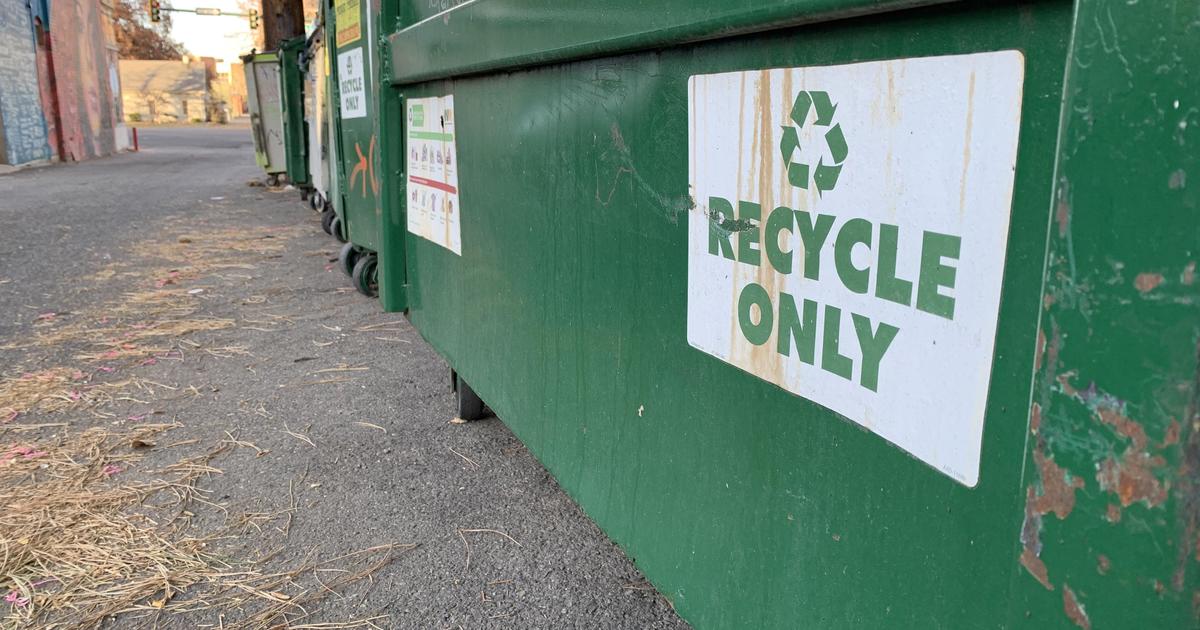Contentious Solar Energy Issue Raised In Colorado
DENVER (AP) - When Xcel Energy raised questions about a system known as net metering that helps determine the credit homeowners get from utility companies for putting solar panels on their roofs, regulators found the issue so contentious they separated it from a review of the renewable-energy policies of Colorado's largest utility.
On Wednesday, Colorado's Public Utilities Commission set a hearing in April to start what is likely to be a protracted process of addressing questions solar proponents fear could lead to changes that could hurt their industry.
Although most states have net-metering policies, the practice has touched off debates from Vermont to Hawaii that could have a profound effect on renewable-energy policies across the nation.
In Golden, near Denver, the city council responded to possible changes in Colorado's net-metering policies with a resolution urging regulators "to reject efforts by Xcel Energy to limit net metering."
In a joint letter to state officials, Dow, the giant chemical company that also sells rooftop solar systems, and Florida-based home developer Lennar said potential buyers of solar-equipped houses in Colorado are showing hesitancy because of concern that regulators might tinker with net metering.
' "The reality is that we'd like an answer as soon as possible," David Kaiserman, whose SunStreet Energy installs solar systems in Lennar homes, said in an interview. "But we don't want to rush and get the wrong answer."
Net-metering policies across the U.S. vary, but they generally allow homeowners with solar panels on their roofs, once they have met their own needs, to get credit from utility companies for energy they put into the grid to be sold to other customers. Many homeowners with rooftop solar still must buy energy from their utility companies, and they also pay service and other charges. When homeowners have surpluses, the credit they get usually goes toward their overall energy bill.
Minneapolis-based Xcel, which has 1.3 million residential and commercial electric and gas customers in Colorado, says net-metering customers receive a 10.5-cent credit for each kilowatt hour they put on the grid, but the company values the benefit to the grid at only 5 cents a kilowatt hour. The solar industry has challenged Xcel's figures.
Xcel is not calling for changes immediately, saying it first wants to make clear to consumers what part of the net-metering credit reflects the value of the energy produced and what part should be seen as a subsidy. When it first raised the issue earlier this year, Xcel said that if regulators do not agree to that accounting, it would ask to drastically reduce the amount of solar energy it took on from rooftop producers this year.
Xcel spokesman Mark Stutz said Wednesday the company was no longer proposing a reduction, and that the company was pleased to be having a public "discussion about what we consider to be a net-metering incentive."
Jason Keyes, a lawyer who represents the Interstate Renewable Energy Council, said net-metering calculations by utility companies often leave out factors such as the possibility money could be saved by relying on renewable sources instead of building new infrastructure. The council he represents promotes renewable energy.
David Owens, executive vice president of the Edison Electric Institute, a utility industry think tank and lobbying body, acknowledges that utilities benefit by, for example, avoiding transmission costs to homeowners who are supplying their own needs.
But Owens said that from a utility's perspective, it's not clear that rooftop solar producers are paying their fair share of the costs of maintaining the grid. If they aren't, he said, the financial burden falls on customers who don't have solar systems. His institute's polling has shown that that argument resonates with rate-payers, he said.
Solar companies accuse traditional utility companies, some of which are establishing large solar projects of their own, of wanting to squash an innovative, agile competitor. Rooftop solar is a small player now, but it is growing rapidly.
Colorado voters were the first in the nation to adopt their own renewable-energy standards after passing a citizens initiative in 2004.
Denver homeowner Barbara Donachy, testifying at a utilities commission hearing earlier this year that focused on net metering, said shade and other factors make her own home unsuitable for solar. But she supports efforts to promote solar on her neighbors' roofs.
"I never thought I would be on the same side as Dow," she said later in an interview. Decades ago, Donachy protested against Dow because the company managed a bomb factory near Boulder that became a notorious hazardous waste site.
On solar, Dow's letter to the governor shows "people do have vested economic interests," she said. But "if I paid more on my utility bill and I knew that was going to lower the carbon footprint, I would do it."
- By DONNA BRYSON, Associated Press
(© Copyright 2014 The Associated Press. All Rights Reserved. This material may not be published, broadcast, rewritten or redistributed.)



